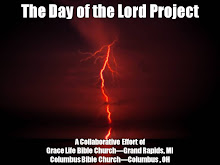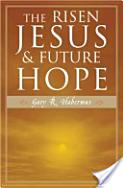Despite the pervasiveness of this line of thought, there are those who choose to take preservation to it logical conclusion and believe that God’s perfect word does exist in the English language. This is the viewpoint of faith not modern scholarship. In an effort to mask the real issue, Satan has created a smoke screen of misinformation aimed at distracting believers from the real issues. From the earliest portions of Scripture Satan has been interested in and actively distorting God’s message to mankind. Even a cursory study of Genesis Three demonstrates Satan’s primary tactics of questioning God’s word, adding to and subtracting from God’s word, and flat out denying God’s word. Once again, Dr. Gipp offers an excellent summary of the situation, “Satan desires to be worshipped. He has the ability to counterfeit God’s actions, and definitely will be involved actively in attempting to destroy God’s Word and/our confidence in that Word, while seeking to replace it with his own version.”[1]
A simple stroll through the Bible section at the local Christian bookstore could not help but leave the honest Christian confused. If God only authored and inspired one Bible, how can there be so many translations all claiming to be God's Word? The New International Version (NIV), New American Standard Version (NASV), King James Version (KJV), New King James Version (NKJV), and many others all claim to be accurate and faithful translations of the "original" manuscripts. As a result, the average Christian thinks modern translations such as NIV, NASV, NKJV or the New Living Translation are simply an updating of the "archaic" language of the King James Version; therefore, all versions are essentially the same.
Unfortunately, upon further investigation a serious and glaring problem becomes apparent. The modern translations are not simply updates of the King James language, but totally different Bibles altogether. For example, compare Mark 1:2-3 in the King James Version and the New International Version. First, the KJV;
- Mark 1:2-3--As it is written in the prophets, Behold, I send my messenger before thy face, which shall prepare thy way before thee. 3) The voice of one crying in the wilderness, Prepare ye the way of the Lord, make his paths straight.
In contrast, the NIV offers a reading that is demonstrably wrong.
- Mark 1:2-3--It is written in Isaiah the prophet: "I will send my messenger ahead of you, who will prepare your way" 3) "a voice of one calling in the desert, 'Prepare the way for the Lord, make straight paths for him.'"
The reason the NIV and KJV differ in their rendering of Mark 1:2 has nothing to do with the translation of individual Greek words. Simply stated, the Greek manuscripts used by the King James translators contain the Greek word "prophetes" which is correctly translated prophets. In contrast, the Greek manuscripts used by the NIV translators contain the Greek word for Isaiah, which explains the verse’s incorrect reading.
The real issue at stake in the version debate is not how to translate individual words from Greek into English but which set of manuscripts are translated. In the brief example cited above, the reason the KJV and NIV say different things is because their underlying Greek texts are different. Common sense says that one cannot translate a verse that is not in the Greek manuscript one is trying to translate. For example, the reason the NIV leaves verses out of the Bible, such as Matthew 23:14 (click here for a complete listing of missing or altered verses in modern versions), is because the entire verse is missing from the Greek texts being translated. The reason the King James includes Matthew 23:14 is because the Greek text used by its translators contained the verse. One is left to conclude that the real issue in the version debate is which set of Greek Manuscripts are utilized when translating.
All of this proves Dr. Gipp’s point that Satan has succeeded in providing a competing counterfeit to God’s Word. What else is one left to conclude when the NIV along with other modern versions obscure Satan’s true identity by substituting “morning star” for “Lucifer” in Isaiah 14:12 when Revelation 22:16 clearly identifies Jesus Christ as the morning star. Is this merely a minor difference in translation that does not affect any of the doctrines of the faith? Can a book be the word of God if it teaches that Jesus Christ fell from heaven??
The virgin birth of Jesus Christ is considered by most believers to be one of the fundamental doctrines of the Christian faith. The NIV and other modern versions obscure this doctrine by implying that Joseph was Jesus’s father. Please compare the NIV and KJV readings of Luke 2:33:
- Luke 2:33--The child's father and mother marveled at what was said about him (NIV).
- Luke 2:33-- And Joseph and his mother marvelled at those things which were spoken of him (KJV).
Endnotes:
[1] Ibid., 27.


























No comments:
Post a Comment